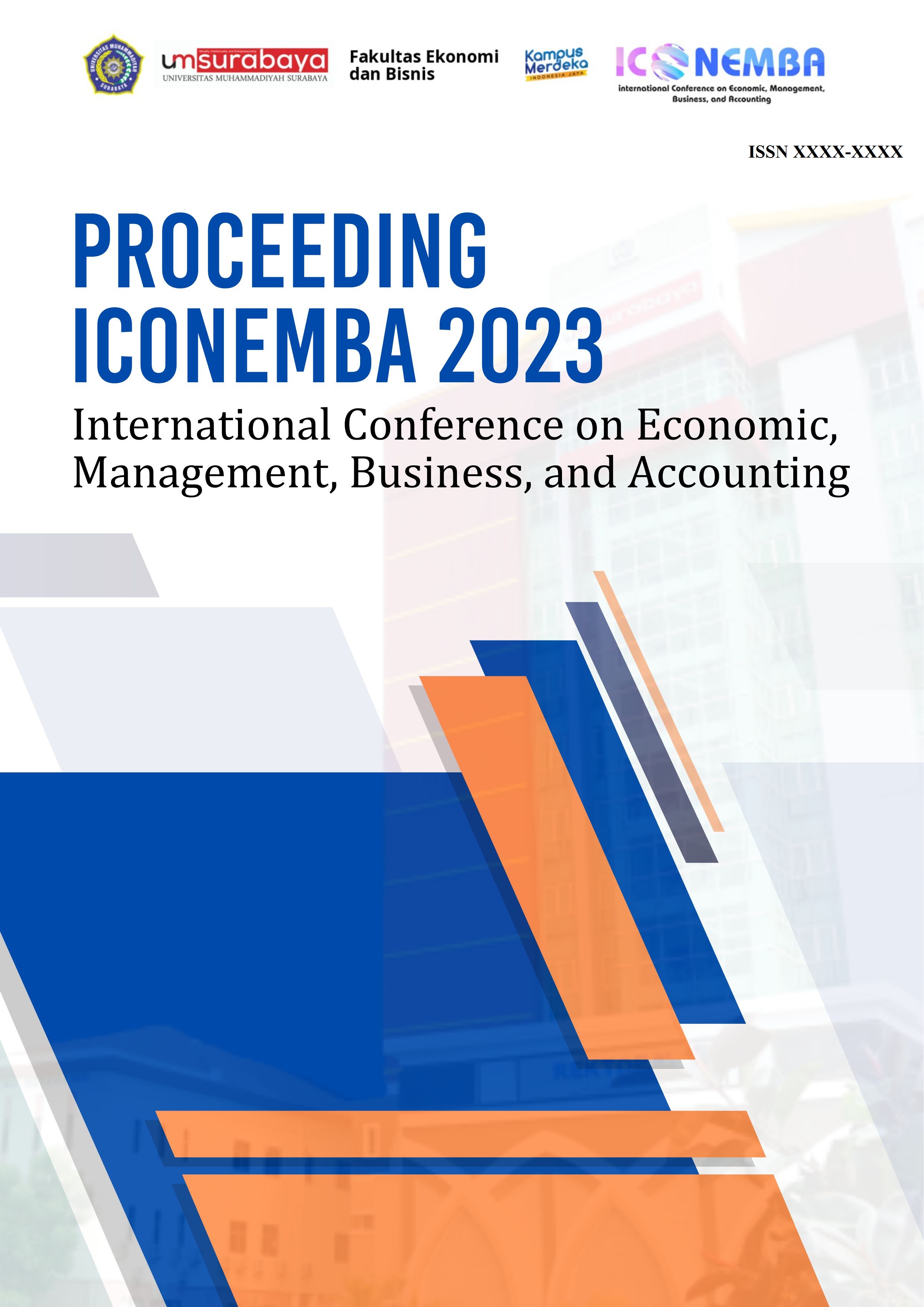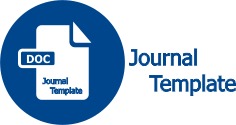AN INFLUENCE OF DEBT TO ASSET RATIO, TOTAL ASSET TURNOVER AND FIRM SIZE ON RETURN ON ASSET IN BUMN PERKEBUNAN NUSANTARA GROUP COMPANIES FOR THE 2016-2020 PERIOD
DOI:
https://doi.org/10.30651/iconemba.v1i1.22653Keywords:
Debt to Asset Ratio, Total Asset Turnover, Return on AssetAbstract
One of the state-owned companies that exists to support the national economy is the Perkebunan Group. The Company of Perkebunan Group is fully aware of the internal and external challenges related to finances as well as tight business competition, one of which is profitability which influences investors' interest in the returns provided. This research method uses multiple linear regression analysis with a purposive sampling technique. Data processing uses tools in the form of the EVIEWS 12 statistical application with the best Random Effect Model (REM) test results. The results of the f test research show that Debt to Asset Ratio, Total Asset Turnover and Firm Size simultaneously influence Return on Assets with a probability value of 0.000000. The results of the t test research show that the Debt to Asset Ratio and Total Asset Turnover variables partially influence Return on Assets, while the Firm Size variable partially has no influence on Return on Assets. The research results of the coefficient of determination in this study were 0.6553, meaning that the ability to explain the model in this study was 65.5%. So this research can be used as a consideration in evaluating the performance of the BUMN Perkebunan Nusantara Group company to increase company value
References
Holding Perkebunan Nusantara 2017. Enhancing Group Performance, Improving Group Confidence. 2017;(2).
KumparanBISNIS. Alasan Pemerintah Tetap Suntik Modal ke BUMN Rugi. 2022.
Holding Perkebunan Nusantara. Jejak Langkah Transformasi untuk Mencapai Tujuan. 2016;232–3. Available from: http://www.ptpn3.co.id/assets/img/annual/Annual Report (Indonesia) PTPN III 2016.pdf
Pernando A. Pabrik Gula Warisan Belanda Ini Tunggak Utang Berisiko Pailit [Internet]. Bisnis.com. 2017 [cited 2023 May 17]. Available from: https://kabar24.bisnis.com/read/20171015/78/699023/pabik-gula-warisan-belanda-ini-tunggak-utang-berisiko-pailit
Pontianak K, Irawan YK. PTPN XIII Berhenti Beroperasi untuk Sementara [Internet]. Kompas.com. 2018 [cited 2023 May 17]. Available from: https://ekonomi.kompas.com/read/2018/07/26/162326526/ptpn-xiii-berhenti-beroperasi-untuk-sementara?page=all
Holding Perkebunan Nusantara 2019. Strengthening Synergizing Sustaninng. 2019;1–566.
Detikfinance. Dipangkas Erick Thohir, Puluhan Jabatan Direksi PTPN Hilang! [Internet]. detikfinance. 2020 [cited 2023 Apr 27]. Available from: https://finance.detik.com/berita-ekonomi-bisnis/d-5031059/dipangkas-erick-thohir-puluhan-jabatan-direksi-ptpn-hilang
Linda R. Pengaruh Current Ratio, Debt To Asset Ratio, Total Asset Turnover, Return On Asset, Return On Equity Dan Net Profit Margin Terhadap Perubahan Laba. Manag Stud Entrep J … [Internet]. 2022;3(1):159–68. Available from: https://www.yrpipku.com/journal/index.php/msej/article/view/401%0Ahttps://www.yrpipku.com/journal/index.php/msej/article/download/401/285
Kasmir. Analisis Laporan Keuangan. Jakarta: PT Raja Grafindo Persada; 2016. 46.
Holding Perkebunan Nusantara 2020. Performing Beyond Boundaries. 2020;1–620.
Sukantini NKA, Novitasari NLG, Dewi NLPS. Pengaruh Corporate Social Responsibility (Csr) Terhadap Nilai Perusahaan Yang Di Moderasi Oleh Profitabilitas. KARMA (Karya Riset Mahasiswa Akuntansi [Internet]. 2021;(2008):280–7. Available from: http://e-journal.unmas.ac.id/index.php/karma/article/view/1640
ZamZami, M. R., Wibowo, N. C., Ana Wati, S. F., Ghozali, I., & Imawan, M. R. (2024). Rancang Bangun Sistem Informasi Berbasis Web Menggunakan Metode Waterfall. CYCLOTRON, 7(01), 61–66. https://doi.org/10.30651/cl.v7i01.21084
Razak A, Guritno Y, Putra AM. Pengaruh Ukuran Perusahaan, Net Profit Margin, dan Total Asset Turn Over terhadap Pertumbuhan Laba (The Effect of Company Size, Net Profit Margin, and Total Asset Turn Over on Profit Growth). J Akuntansi, Keuangan, dan Manaj. 2021;3(1):1–13.
Ariawan EZS. Determinan Struktur Modal: Perspektif Pecking Order Theory dan Trade-off Theory. J Technopreneursh Econ Bus Rivew. 2022;3(2):121–36.
Kasmir. Analisis Laporan Keuangan. Edisi Pertama. Jakarta: PT Raja Grafindo Persada; 2019.
Siswanto E. Buku Ajar Manajemen Keuangan Dasar. Malang; 2021.
Riswanda, M., & Ghozali, I. (2020). Tips & Trick Android Root:Cara Cepat dan Mudah Belajar Tips & Trick Android. Jakad Media Publishing. www.nandroid19.com
Lukviarman N. Corporate Governance. Solo: PT Era Adicitra Intermedia; 2016.
Dharmos HI. Analisis Pengaruh Rasio Keuangan Terhadap Pertumbuhan Laba dengan Ukuran Perusahaan Sebagai Variabel Moderating Pada Perusahaan Manufaktur Sektor Industri Otomotif Yang Terdaftar di Bursa Efek Indonesia. 2021;6.
Zuliyanti I, Andika AD, Oemar A. Pengaruh Likuiditas, Solvabilitas Dan Rasio Aktivitas Terhadap Nilai Perusahaan Dengan Profitabilitas Sebagai Variabel Intervening (Studi Kasus Pada Perusahaan Perkebunan Yang Terdaftar di Bursa Efek Indonesia Tahun 2015-2019). BISMA J Bisnis dan Manaj [Internet]. 2021;8(8):1–20. Available from: https://jurnal.unej.ac.id/index.php/BISMA/article/view/7550
Sitanggang A, Purba AM. Pengaruh Asymetric Informaition, Leverage Dan Ukuran Perusahaan Terhadap Manajemen Laba (Studi Empiris Pada Perusahaan Manufaktur Yang Terdaftar Di Bursa Efek Indonesia Tahun 2011-2013). J Riset Akuntansi Keuangan. 2022;8(1):1–7.









